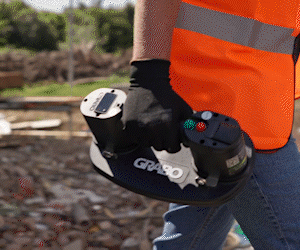The slight downgrade comes amid continued Brexit uncertainty, regional fluctuations in housing markets and growing concerns over major infrastructure delivery.
The Construction Products Association’s spring forecast anticipates overall construction output contracting by 0.4% in 2019, revised down from a forecast of marginal growth of 0.3% in the winter forecasts.
Growth of 1.4% is forecast for 2020, largely driven by activity on major infrastructure projects but also supported by sharp increases in warehouses and ports activity.
Industry forecasters at Experian are less pessimistic for this year with construction output expected to be a little stronger than put forward in the winter but a little weaker in 2020 and 2021.
Growth has been lowered for the public housing and infrastructure sectors, although the decline in commercial construction has been softened.
Noble Francis, Economics Director at the Construction Products Association said: “It’s a currently a mixed picture for the construction industry and fortunes will depend highly on the sector and region in which firms are working.
“Those involved in major infrastructure projects, warehouses or ports are enjoying considerable growth but firms working on offices, retail and factories will be experiencing falls in construction activity.”
He added: “In private house building, activity is falling sharply in London, as well as parts of the South East and East but activity in the North West, Yorkshire and the Midlands is continuing to grow in line with house price inflation.
“Brexit uncertainty has had a large impact on sectors dependent upon high upfront investment for a long-term rate of return, especially where the investment is from international investors.
“It has so far hindered investment in new offices towers, factories and high-end residential and, given a 12-18 month lag between new orders and activity on the ground, output in these sectors will be adversely affected in 2019 and 2020 at the very least.
“Conversely, the uncertainty has provided a boost to demand in small sub-sectors such as warehouses and ports, which are both expected to enjoy double-digit growth in 2019 and 2020.”
Overall, construction output is expected to fall marginally this year before 1.4% growth next year but this growth was highly dependent on the government’s delivery of infrastructure, said Francis.
Experian expects infrastructure to be the star performer, although growth rates have been shaved down since the winter, largely for two reasons.
The first is the delay in getting main civils work on HS2 up and running, which has been put back to the end of this year and the second is the postponement of the Wylfa new nuclear build project, which impacts growth in 2021.
The Experian forecasting panel added: “There is little doubt that the removal of the local authority borrowing cap will prove to be a game changer for the social housing sector, the question is timing.
“Both output and new orders faltered last year, suggesting that a significant increase in activity may be a little way off yet.
“Thus, we are less bullish for both this year and next year than we were in the winter, but we have retained strong growth for 2021.”

























































